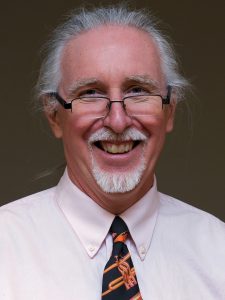 By Bob Hulteen
By Bob Hulteen
Since moving to Minnesota in 1991, it has become my mid-May annual ritual to watch the last moments of the legislative session right up until the gavel is pounded at midnight. (Thank you, TPT, for the long hours of coverage of hearings and debates throughout the session, including its final moments.) While attendance at legislative hearings for me most often is dictated by specific issues being discussed, the last moments of the legislative session includes a curiosity about how the representatives and senators will treat each other in a public space.
Well, last night I watched as Rep. Connie Bernardo (a Lutheran from New Brighton, by the way) carried the higher ed omnibus bill; Rep. Liz Olson from Duluth (and a Luther Seminary graduate) led the debate with Rep. David Baker on a conference committee bill responding to opioid addiction in Minnesota; and Sen. David Senjem (a Rochester Lutheran) called to account unanticipated spending on a bonding bill. Sure, some legislators whined that they hadn’t been included in discussions in ways they would have wanted, and others preferred to blame the victims than look for solutions. But, all in all, they accomplished some important goals, even if it will take another day or two in special session to make sure every “i” is dotted and every “t” crossed.
My examples above aren’t to imply that only Lutherans care about the common good. But it is valuable to be reminded that there are Lutherans who do feel called to the public square.
While listening to the debate in the Senate on TV last night, I could also hear chanting from outside the chambers in the cap rotunda. And, I am certain there were Lutheran friends there too, demonstrating through their presence a concern for undocumented people, unhealthy medical practices, underfunded schools, or declining farm supports. But they were present; they were motivated by faith to engage issues that affect people’s real lives.
BEFORE I COULD GET myself in front of the television on Monday evening, I attended a fundraiser celebrating the 40th anniversary of the Lutheran Volunteer Corps (LVC), a national organization founded through the vision of one Washington, D.C., congregation. Literally, thousands of young people have been “ruined for life” by LVC. By coming into contact through their work of healing the nation, their communal living, or their commitment to sustainability, these young adults’ lives have been changed.
“Thousands of young people have been ‘ruined for life’ by the Lutheran Volunteer Corps.”
The gospel does that. LVC participants touch people’s wounds and they believe anew. They experience the struggles of vulnerable people and they can no longer live as if these folks’ lives aren’t valuable. Vocations have changed, thanks to LVC and organizations like it. For example, Jeremy Schroeder, an LVC alum, is now a city councilmember in Minneapolis and Ben Whalen, another alum, is on Richfield’s council. (Jeremy is currently a member of my congregation and Ben previously was active there.)
In the end, the test of our faith is how we treat each other. Like the elected officials, sometimes we do well; sometimes not. But we could all do better.
Thank God there are organizations like LVC that point us toward a gospel lifestyle. During its 40th anniversary, you might want to take a look at its impressive legacy.
